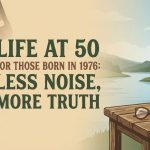Introduction: The Clean-Eating Experiment That Took an Unexpected Turn
We’ve all seen the promises: “Eat clean and feel amazing in just days!” So I decided to test it myself. Ten days. No processed food. No sugar. No alcohol. No fried snacks. Just whole, real, unprocessed meals.
It went surprisingly well—until Day 11, when I caved and binge-ate like my life depended on it.
This is the full breakdown: what eating clean did to my body and mind, how one binge affected everything, and what I learned about food, guilt, and self-worth along the way.
The Rules: What “Eating Clean” Meant for Me
Before we get into the results, here’s what I committed to during the 10-day challenge:
Allowed:
- Fresh vegetables and fruits
- Lean proteins (chicken, eggs, tofu, fish)
- Whole grains (quinoa, oats, brown rice)
- Healthy fats (avocado, olive oil, nuts)
- Water, green tea, herbal tea
Not Allowed:
- Added sugars (desserts, sweet drinks)
- Processed food (chips, frozen meals)
- White flour, pasta, and bread
- Alcohol
- Caffeine
The goal wasn’t weight loss—it was mental clarity, energy, and breaking dependency on processed foods.
Days 1–3: Withdrawal and Mood Swings
The first three days were the toughest. I had:
- Headaches (especially from caffeine withdrawal)
- Cravings every 90 minutes
- Low mood and irritability
- Constant thoughts about “forbidden” foods
My body felt betrayed. I wasn’t hungry—just unsatisfied.
Lesson: Much of our eating isn’t about hunger. It’s about comfort and habit.
Days 4–7: Something Shifted
By Day 4, the fog started to lift. I wasn’t bouncing with energy yet, but I wasn’t crashing either. I noticed:
- Better digestion – less bloating, more regularity
- Improved skin – clearer, less oily
- More stable energy – no afternoon crashes
- Better sleep – deeper and more restful
Food prep took longer, but meals began tasting better. My taste buds adjusted. I started enjoying plain roasted sweet potatoes and steamed greens—no sauces needed.
Unexpected win: My mood stabilized. I didn’t feel “high,” but I didn’t feel anxious either.
Days 8–10: Superhuman Energy (But a Growing Urge)
This was the peak.
- I woke up feeling light.
- My brain felt more focused.
- I worked longer without feeling burned out.
- My skin glowed and I looked more rested.
But something else grew stronger: the desire to binge.
Not physical hunger—more like mental rebellion.
I kept thinking:
- “Just one cookie after all this effort wouldn’t hurt.”
- “You deserve a reward.”
- “This is unsustainable anyway.”
I started negotiating with myself. And that’s when I knew: something was about to break.
Day 11: The Binge
It started innocently.
I told myself I’d have “a little treat.” But within 20 minutes I had devoured:
- 1 large chocolate bar
- A slice of cake
- A full bag of chips
- A sugary latte
- 2 slices of white toast with peanut butter
I ate until I felt physically sick. Not because I was hungry, but because something inside snapped.
And then came the flood of emotions:
- Shame
- Guilt
- Anger
- Fear of losing all progress
What the Binge Did to My Body (Physically)
Within 2 hours:
- Immediate bloating
- Sugar crash and fatigue
- Headache
Next morning:
- Puffy face
- Brain fog
- Craving more junk (the cycle reignited)
- Sluggish digestion
But here’s the surprising part: nothing irreversible happened.
I didn’t gain 5kg overnight. My skin didn’t break out instantly. My body bounced back faster than my mind did.
The Mental Spiral: More Damaging Than the Food
The binge didn’t undo the benefits of clean eating. But my self-talk did:
- “You’re so weak.”
- “You just wasted 10 days.”
- “Why can’t you stick to anything?”
That mental narrative made me feel like a failure. For 48 hours, I wanted to quit everything.
This was the real lesson: One binge isn’t the enemy. Shame is.
What I Did to Recover (Without Starting Over)
1. Stopped the Guilt Cycle
I took a breath, accepted what happened, and reminded myself: one bad meal doesn’t erase ten good days.
2. Hydrated Like Crazy
I flushed my system with water and green tea to reduce bloat and reset digestion.
3. Ate a Clean, Hearty Breakfast
I didn’t “punish” myself with starvation. I ate eggs, spinach, and oats to re-balance blood sugar.
4. Journaled the Experience
Instead of ignoring the binge, I wrote down what I felt—before, during, and after.
That reflection helped me see the emotional pattern. It wasn’t about food. It was about pressure, perfectionism, and reward-seeking.
Key Lessons I Learned
1. Clean Eating Works—But You Need a Plan for After
10 days of eating clean transformed my energy, sleep, and skin. But I had no strategy for what came next.
2. Food Is Emotional, Not Just Nutritional
Depriving myself triggered rebellion. It wasn’t about calories—it was about control.
3. One Binge Doesn’t Define You
Progress isn’t ruined by one misstep. The problem is quitting. Not slipping.
4. Balance > Perfection
I’d rather eat clean 80% of the time long-term than perfectly for 10 days and burn out.
5. The Body Forgives Quickly. The Mind Needs Help.
My physical symptoms disappeared fast. But my brain needed journaling, self-compassion, and support to recover.
What I’d Do Differently Next Time
- Introduce “treats” earlier in a controlled way to avoid the all-or-nothing mindset
- Include more healthy fats to stay fuller longer
- Talk to someone (friend, therapist, coach) during emotional cravings
- Track emotions, not just food
- Set a re-introduction plan for life after the clean eating phase
Final Thoughts: It Wasn’t a Failure—It Was Feedback
I used to think that slipping up erased progress. Now I know better.
Clean eating for 10 days showed me what my body is capable of.
The binge showed me what my mind still needed to heal.
If you’ve ever felt like one wrong meal undid everything—remember this:
One moment doesn’t define your journey. How you respond to that moment does.
I didn’t fail. I learned.
And now, I eat with more awareness, more kindness, and less fear.
That’s what real transformation looks like.



